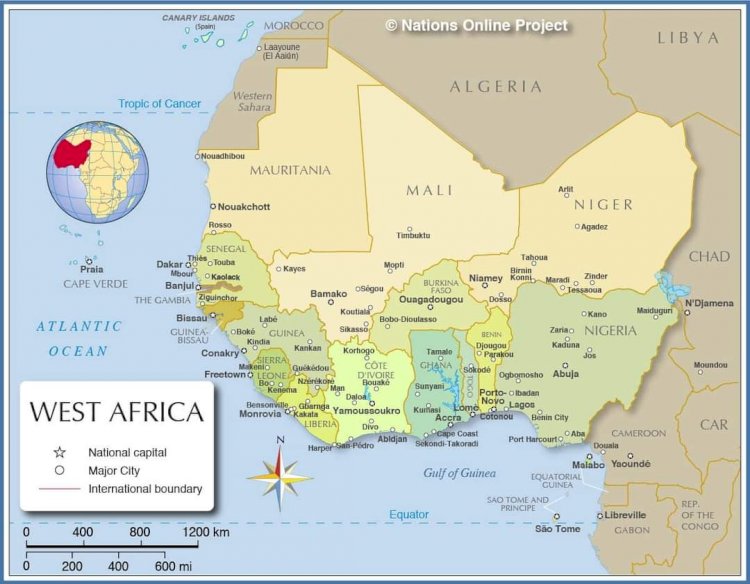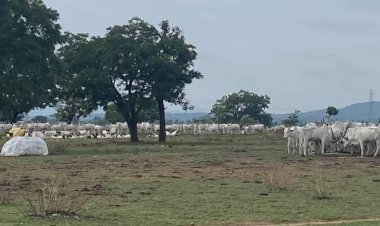FULANI, VILLAINS OR VICTIMS - 3

When Islam came to West Africa following the conquest of North Africa by the Arabs, the Islamic religion spread throughout the territory through merchants, traders, scholars and missionaries.
Throughout the Sahel,Touareg merchants from Gao, Djenne’ and Timbuktu in modern Mali would come to the markets in Katsina, Kano and other Hausa city states through the trans Saharan trade routes, and during the Zuhr or Asr prayer would perform ablution and pray in the middle of the markets while Hausa and Fulani traders watch in awe at how the new religion was practiced. Gradually the Hausa and Fulani accepted Islam (a new religion) peacefully.
Scholars and missionaries followed in the footsteps of the merchants and traders in propagating the religion in markets and eventually to the palaces of Hausa kings.
The famous Muhammad al-Maghili (c.1440 – c.1505) a Berber Islamic cleric from Tlemcen now in modern Algeria converted to Islam, the ruling classes among Hausa, Fulani, and Tuareg peoples in West Africa. Al-Maghili was welcomed to the court of Muhammad Rumfa, where he devised ideas on the structure of a government, qualities of an ideal ruler, and the administration of justice.
Sarki Mohammad Rumfa (1463-1499) was the greatest of Kano’s Hausa kings, who established the Kurmi Market, built the Juma’at Mosque (restored) and the palace now used by the Fulani emirs.
At this time Kano, Katsina, Zazzau, Gobir, Rano, and all the Hausa states, but two, were ruled by Hausa kings. Arab, Berber and Fulani traders resided in the cities along with Hausa local merchants. Business was booming.
Unfortunately the Hausa kings and their subjects (both the Hausa and Fulani) just as among the kings and tribes in Senegal, Fouta, Macina, were mixing the religion of Islam with their traditional religion.
That was when the tariqa Qādiriyyah and later the Tijāniyyah came to West Africa from Morocco and Algeria. This movement organized groups of devout Fulani Muslim intelligentsia who felt compelled to work toward a true Islamic society. This is the main cause of the Fulani jihad. A religious duty to cleanse Islam of idolatry and establish an ideal Islamic society in the hope of spreading the religion.
Four Jihad movements all led by the Fulani brought tribes in Fouta Toro, Futa D’jalon and the Sahel under Fulani rule as follows-:
1. The first Fulani jihad took place in the Islamized Sénégal valley where the Fulani clerics succeeded in taking over political power from local Mande rulers of Fouta Toro now in modern Senegal in the 17th century.
2. In the second half of the 18th century the second Jihad took place(following the same pattern) in Fouta D’jallon, now in modern Guinea Conakry and Guinea Bissau.
3. When news of these developments in Fouta Toro and Fouta D’Jalon reached Hausa land, the most famous of the western African jihads was launched in 1804 in Hausaland by Usman dan Fodio.
4. The fourth Jihad was undertaken by another Fulani Muslim leader, Shehu Ahmadu Lobbo, who was a student of Shaikh Usman Dan Fodio. Influenced by Usman dan Fodio’s teachings, Lobbo who actually participated in the Jihad in Hausa land, began his Jihad in 1818 when he defeated the forces of the pagan Fulani and Bambara chiefs in Macina (Masina) and extended his rule to the cities of Timbuktu and Djénné in modern day Mali.
Having carried out the Jihad successfully, established a just and egalitarian society based on Islamic precepts, the Fulani took full control of the territory from the modern day Senegal and The Gambia, Guinea Conakry, Guinea Bissau, Mali, Northern Burkina Faso, Niger republic, and Northern Nigeria down to Nupe land and Ilorin in the old Oyo empire; eastwards to Bauchi, Gombe, Borno, Adamawa, Muri, and to the republic of Chad and Northern Cameroon.
The questions I will be answering in part 4 and subsequent parts of this write up will be -
i. the effect or consequences of the Jihad on Hausa land, Nupe, the Yoruba old Oyo empire and on the Kanem Borno empire of the Kanuri in Nigeria.
ii. why and how did the tribe ‘Hausa-Fulani’ emerged in Nigeria.
iii. why are some of the Fulani who were part of a people so successful in nation building and re-establishment of Islamic religion and a people so successful in establishing learning and scholarship, a people with excellent conduct and candour now engage in kidnapping, armed robbery and banditry in the same area they gave peace, integration and leaning to.
iv. suggestions on ways and means of salvaging the kidnappers and the bandits; and
v. finally, I will conclude by asking you to decide whether the Fulani are victims or villains in the context of West African and indeed African history.
By Sadiq Ibrahim Dasin


















































